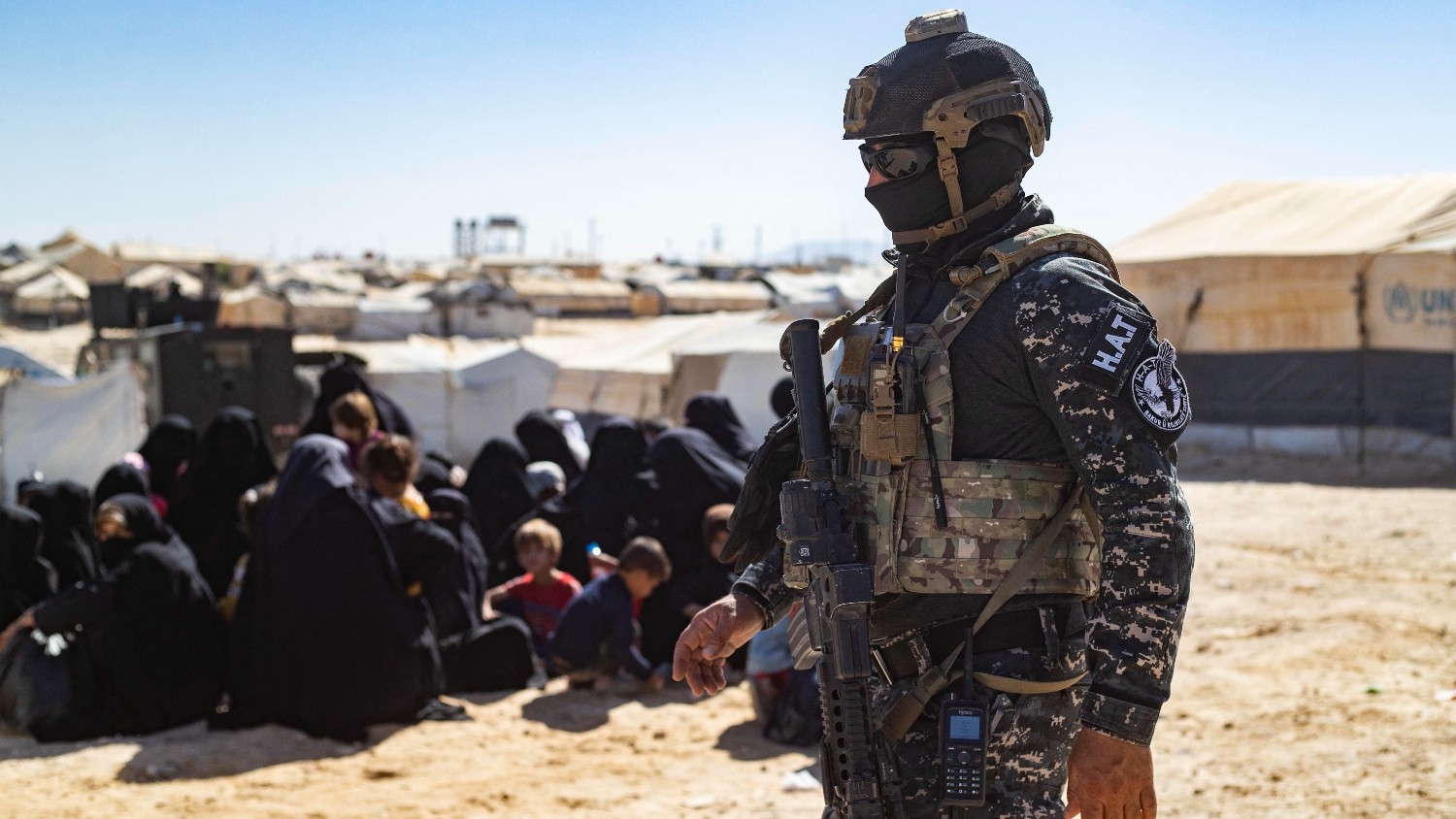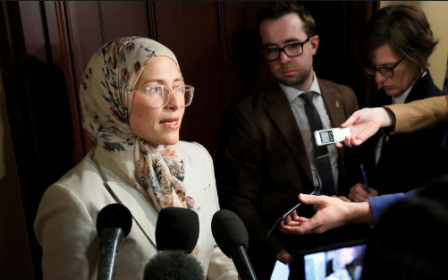Canada repatriates 14 women, children from Syria detention camps

Canada has announced that it is repatriating four women and 10 children who have been held for at least three years in Syria in Kurdish-controlled detention camps for relatives of Islamic State (IS) group fighters.
"Today, 4 Canadian women and 10 Canadian children are being repatriated to Canada. As long as conditions allow, we will continue this work," Global Affairs Canada said in a statement on Thursday.
“We thank the Autonomous Administration of North and East Syria [AANES] for its cooperation in conducting this operation under a difficult security situation," it added, also thanking the US for its assistance in the repatriation.
The Canadian government did not give further details as to which individuals were being repatriated, and it was not clear whether or not the group arriving in Canada included children whose mothers were not given the option to come to the country with their children.
There are at least two dozen Canadians still being held in camps in northeastern Syria after the latest repatriations.
Stay informed with MEE's newsletters
Sign up to get the latest alerts, insights and analysis, starting with Turkey Unpacked
The repatriation could be Canada's biggest so far after IS was defeated in 2019. The news was welcomed by local community groups which have been working and advocating for families inside the Syrian camps.
"We are still waiting for official notice that the plane has landed, bringing four Canadian women home to their families," Alexandra Bain, director of Families Against Violent Extremism (Fave), told Middle East Eye.
"We were overjoyed to see a photograph of the Canadian delegate finally meeting with the AANES to take responsibility for the protection and transportation of these Canadian citizens back to Canada."
Bain, however, noted that there are still many women and children in the camp that Canada has yet to repatriate.
"While there will be relief and joy in four Canadian homes tonight, many other families have been left empty-handed," she said.
"Nineteen Canadian children have been left behind in the camps with 7 of their mothers. Six men, a number of them fathers of some of these children, were left behind in the prisons."
Lawrence Greenspon, a lawyer working with some of the families held in the camps, told BBC that one woman from Quebec, who has six children, was "not on the flight" and said that Canada offered to repatriate her children without her, as they conduct a risk assessment on the mother.
In response to being asked on Wednesday whether Canada was breaking government policy by asking a mother to send her children back to the country without her, Prime Minister Justin Trudeau said Canada was "engaged with all of our responsibilities". Trudeau declined to comment further.
Ongoing legal battle
Canada's announcement of the repatriation comes amid the backdrop of an ongoing legal battle to allow all Canadian nationals to return to the country from the camps in Syria.
On 21 January, Canada decided to take back 23 of its citizens - four men, six women, and 13 children - held in the Kurdish-run camps, after a federal court ruled a day earlier that the four men had to be repatriated.
Canada, however, has appealed the court decision to repatriate the group of men, which includes Jack Letts, a British-Canadian man who travelled to IS-controlled territory in Iraq and Syria from the UK in 2014 and was subsequently stripped of his British citizenship.
Approximately 10,000 men and hundreds of adolescent boys are being held in 14 overcrowded prisons in Syria's northeastern Hasakah region.
Women and children live in two camps, al-Roj and al-Hol, which are home to around 60,000 people, including about 20,000 from Syria, 31,000 from Iraq, and up to 12,000 from other countries.
Many of them have been in captivity since 2019, when Kurdish-led forces backed by an international coalition defeated IS and took control of Syrian territory previously held by the militant group.
Prior to Thursday, the Canadian government had only repatriated a handful of women and children from Syria, including two women and two children from northeast Syria in October last year.
Ottawa has faced criticism over the years from other countries, including the US, for not doing enough to repatriate all of its citizens being held in the camps.
US General Michael Kurilla, head of US Central Command, visited the camps in March and called for the "repatriation, rehabilitation and reintegration of the camp residents back into their countries and communities of origin".
Middle East Eye delivers independent and unrivalled coverage and analysis of the Middle East, North Africa and beyond. To learn more about republishing this content and the associated fees, please fill out this form. More about MEE can be found here.





